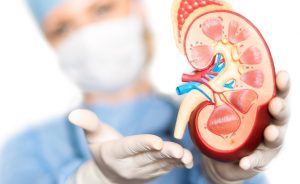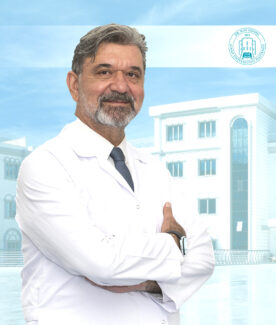Urology is the department which studies urine and the male reproductive organ and the diseases as well as the treatments related to them. Kidneys, prostate, bladder, testicles are among the organs that are studied by urology. The department of urology studies common diseases in society such as kidney and urinary system stones, benign prostate enlargement, prostate cancer, kidney, bladder and testicle cancers, urinary tract infections and diseases like urinary incontinence. The urologist is responsible for preventing the diseases of these systems but to be able to choose the most modern, effective and least damaging treatment for the patients when necessary by making accurate diagnoses. Surgical methods are frequently used for the treatments of urological diseases. Open surgical methods used traditionally cause pain after operation, long staying periods at the hospital and delays the return for the patients to their daily lives due to large incisions. Also, large incision scars cause cosmetic problems for patients especially women. Thanks to the recent technological advancements introduced into clinical use, devices which allow many urological operations to be performed with very small incisions, are even performed without incisions. Urology department of our hospital possess all the advanced technological facilities used all over the world to diagnose and treat all urological diseases allowing successful modern treatments. Devices and Procedures in Our Urology Polyclinic: Diseases diagnosed and treated in our department: Kidney and urinary system stones: All the current treatments from all over the world in treating kidney and urinary system stones are performed in our hospital. Benign prostate Hyperplasia (BPH): Prostate Cancer “Prostate Radiotherapy” is offered in our hospital for patients who opt out of surgery or are inoperable. Bladder Cancer Kidney Cancer Testicle Cancer In cases where the illness has spread to other regions, retroperitoneal lymph nodes dissection is also offered. Paediatric (Child) Urology Urinary Incontinence in Women Dr. Suat Günsel University of Kyrenia Hospital offers high quality diagnosis and treatment services in the Department of Urology and other branches as well. The diagnoses and treatments of diseases have high rate of success due to units equipped with modern technologies, experienced specialist and technical personnel. Radiology is the most common method of diagnosis for Urology. Magnetic Resonance Imaging (MRI), Computerised Tomography (CT), ultrasonography and other conventional radiology devices are used with modern and digital devices for this purpose in our hospital’s Department of Radiology. Renal scintigraphy which is used for the diagnosis and monitoring of urological kidney diseases, Skeletal Scintigraphy and PET CT used for determining the stage of urological cancers, are performed in the Department of Nuclear Medicine and play an important role in diagnosing and monitoring diseases. Dr. Suat Günsel University of Kyrenia Hospital Laboratory equipped with latest technological devices offer all departments as well as urology in immunological, genetic and other applications. Dr. Suat Günsel University of Kyrenia Hospital offers technical equipment in operating theatres, instruments, devices, experienced staff and modern urological applications for the treatment of urological diseases.
Our clinic offers diagnoses and treatments for all disorders for common childhood illnesses such as incontinence, hypospadias, undescended testicle, bladder leaking into kidney (vesicoureteral reflux), narrow kidney end (U-P narrowing).
The most advanced urodynamic device is used among other modern methods for patients with urinary incontinence and TVT or TOT surgeries with small incisions are performed in our clinic if necessary.

